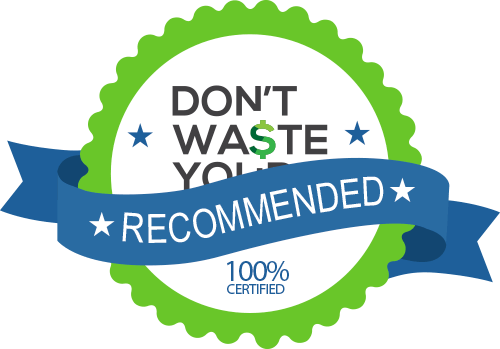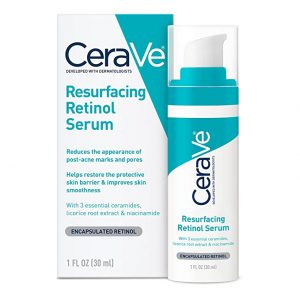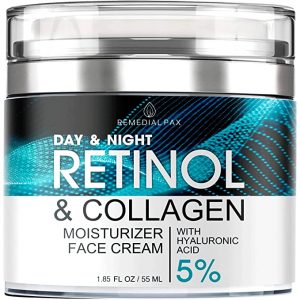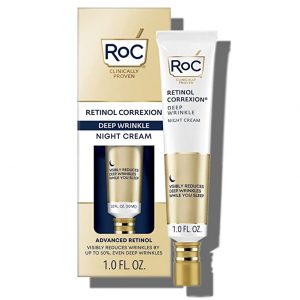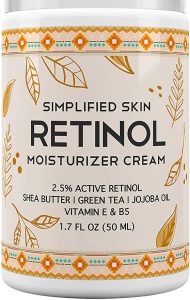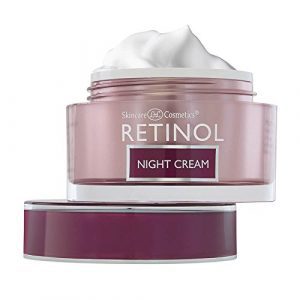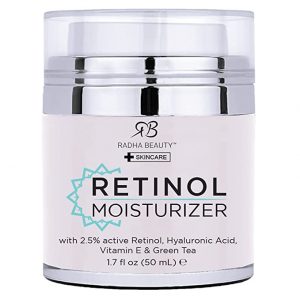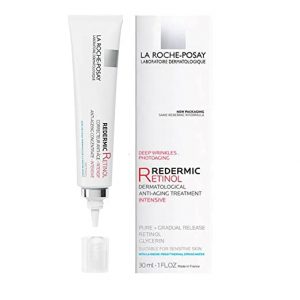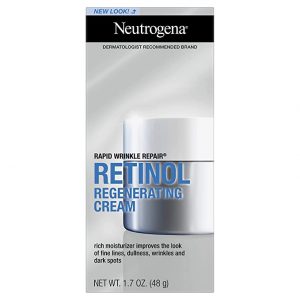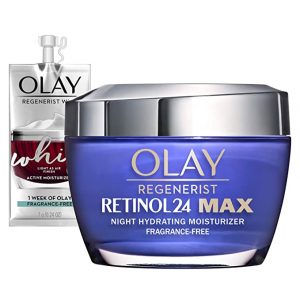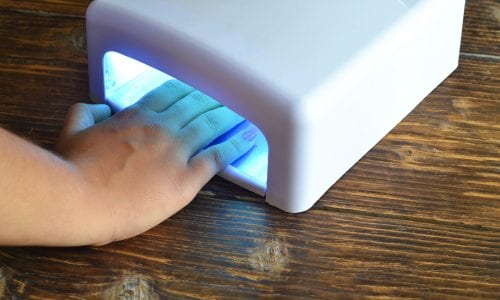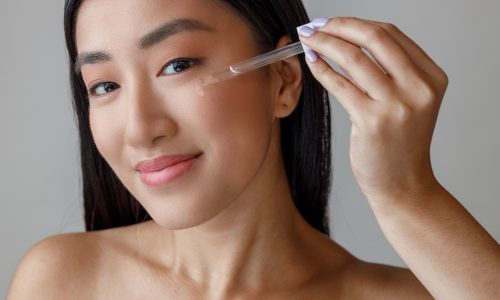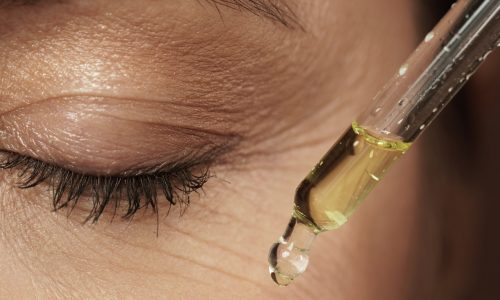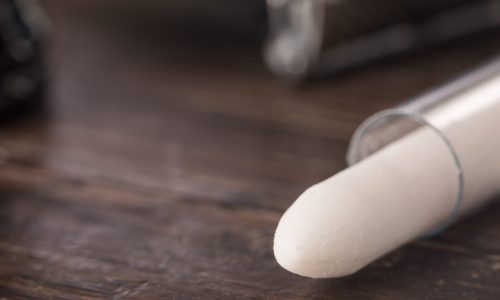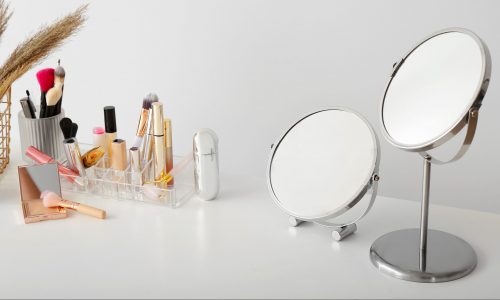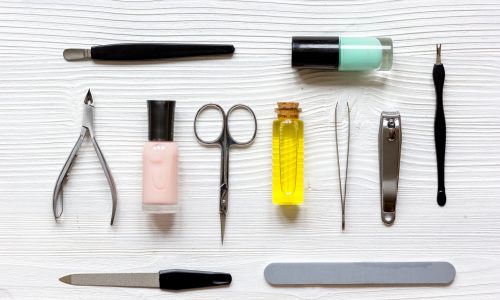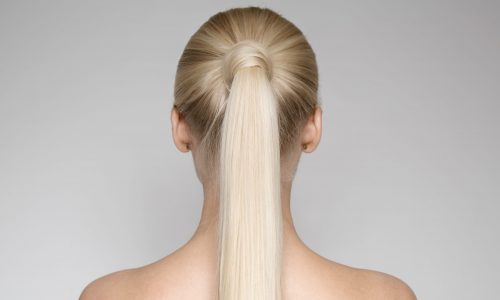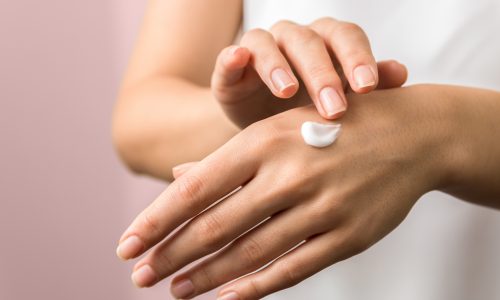The Best Retinol Creams and Serums
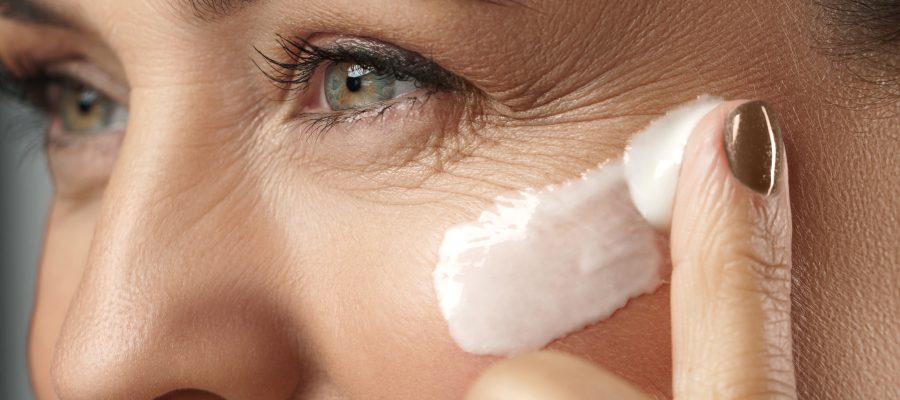
Our Review Process
Don't Waste Your Money is focused on helping you make the best purchasing decision. Our team of experts spends hundreds of hours analyzing, testing, and researching products so you don't have to. Learn more.
Our Picks For The Top Retinol Creams and Serums
- 1. CeraVe Retinol Resurfacing Serum
- 2. REMEDIAL PAX Day & Night Retinol Cream for Face
- 3. RoC Retinol Correxion Deep Wrinkle Night Cream for Face
- 4. Skincare LdeL Cosmetics Anti-Aging Restorative Retinol Cream
- 5. Radha Beauty Miracle 2.5% Retinol Cream for Face
- 6. La Roche-Posay Redermic Retinol Anti-Aging Cream for Face
- 7. Neutrogena Rapid Wrinkle Repair Retinol Cream for Face
- 8. Olay Regenerist Retinol 24 Max Cream for Face
- 9. Simplified Skin 2.5% Retinol Cream for Face
This serum is often recommended for acne-prone skin, though Crespo says it's a greater starter retinol for all skin types. It's also a great choice if you're new to retinol because it contains calming ingredients like ceramides, glycerin, licorice root extract and niacinamide.
Recommended for Acne-Prone SkinThe best budget-friendly product that targets acne, wrinkles and texture
This retinol cream is a highly-rated skincare product known for its potent anti-aging properties. Formulated with retinol, hyaluronic acid, and other nourishing ingredients, it targets fine lines, wrinkles, and uneven skin tone, promoting smoother, firmer, and more radiant skin. Users appreciate its effectiveness in reducing signs of aging, improvi...
Retinol PowerUsers love the potent anti-aging effects and improved skin texture from this retinol cream, promoting a youthful glow and reduced fine lines.
Designed for nighttime use, this retinol product includes glycerin to help revitalize the skin plus a proprietary mineral complex that promises to firm skin while reducing the appearance of wrinkles. It’s non-greasy and non-comedogenic and comes in a 1-ounce bottle.
Gentle and NourishingWhether you're targeting fine lines and wrinkles or dark circles under your eyes, this cream adds radiance.
With a list of ingredients designed to reduce fine lines and keep your skin smooth, this anti-aging cream is a great option. In addition to retinol, it includes Vitamins E and B5, shea butter, green tea and jojoba oil. It adds no harmful chemicals to your beauty routine.
Lightweight and ComfortableYou'll like this retinol product with aloe vera, which gives a cooling effect to the lightweight formula.
Buying Guide
Retinol has become one of the top beauty trends in recent years. You’ll see it listed on moisturizers, lotions and serums. But retinol isn’t just a buzzword — its claims are backed by science, with multiple studies showing that it is effective in reducing wrinkles, fading age spots, and softening skin. With prolonged use, retinol has been found to thicken the epidermis and boost collagen production. Using retinol regularly can improve your skin in numerous ways.
Perhaps the best thing about retinol is that it’s more or less a topical form of vitamin A. It’s used not only for reducing fine lines, but also to help lessen the appearance of blemishes and spots. Prescription versions called retinoids are more potent, but as an over-the-counter product, retinol is pretty powerful in itself.
Retinol products can come with side effects, though, especially if you start out using it aggressively. Some experience red skin or peeling skin and itchiness after using them. It’s best to try small amounts every few days at first, then use it more often once you’re comfortable that you won’t have a reaction.
To counter the drying effects of retinol products, many of them build in moisturizers. If you’re concerned about chemicals, you’ll want to look for one that uses natural oils and vitamins for hydration, such as the humectant hyaluronic acid. Hyaluronic acid is a natural substance found in your eyes and joints. Since hyaluronic acid production slows with age, many anti-aging products build this ingredient in.
For additional moisture, aloe vera and natural oils like jojoba oil and shea butter are popular add-ins. Some products claim a proprietary mix of vitamins and oils designed to nourish the skin.
Over the years, researchers have looked into retinol’s effectiveness in wound healing. The ability to thicken the epidermis and boost collagen production can be a great help when you’re waiting for skin to repair itself. However, if this is important to you, please consult a physician for proper retinol use.
What to Look For
- Retinol can work well to improve skin appearance. If you have a blemish you’re concerned about, though, make sure you consult a physician.
- If you’re worried you may react badly to retinol, test a small patch of skin and wait a day or two to make sure all is good before expanding to a wider area.
- Retinol makes skin more sensitive to UV rays. Most products are designed to be used at night, but you should still wear sunscreen during the daytime while you’re using retinol regularly. If you’re leaving for a sun-filled vacation soon, take a break from retinol treatments until you return.
- Clogged pores can be a problem with some moisturizers. Make sure you choose moisturizers marked non-comedogenic, which means they’re designed not to clog pores.
- Some products build retinol in, but if you’re looking for noticeable results quickly, you’ll need something more concentrated. These are often sold in 1- to 2-ounce bottles or tubes. A great thing about this smaller format is that it’s easy to slide into a pocket of your overnight bag or into a corner of your makeup kit.
- You can find retinol products that are free of parabens and other synthetic substances. You can also find retinol products that promise no animal cruelty was involved in their manufacture along with ones that use sustainable packaging.
- Fragrance can be a problem, especially if you have sensitivities. Some retinol products promise to be fragrance-free but may still have a light scent to them.
More to Explore
What Is Retinol?
Retinol is a form of vitamin A — a vitamin known for its health benefits to your eyes, immune system and skin. You can find vitamin A in many meats, fish, eggs and orange-hued veggies and fruits like carrots and cantaloupe. But the retinol in skincare products is usually synthesized in laboratories. And yes, it does seem to be effective on many different skincare fronts.
“It’s like a magic wand for the skin, addressing issues from aging skin and uneven tone to acne,” says Dr. Praveen Guntipalli, a board-certified physician in internal medicine and the medical director of Sanjiva Medical Spa in Dallas, Texas. “It promotes cell turnover, unclogs pores, aids in collagen production and helps in diminishing the appearance of fine lines and wrinkles.”
Who Should Use Retinol?
Because of its proven effectiveness, retinol gets suggested a lot — to a lot of people. But it’s also known for slightly inflaming the skin, at least at first.
“The key to using retinol is starting slow and being consistent, as it can initially cause some irritation,” says Guntipalli.
Irritation? I don’t love the sound of that. But among beauty and skin experts, it’s generally accepted that your skin might initially respond with redness, flakiness and rawness. It’s normal, so if and when that happens, that means it’s working. Just keep applying (in tiny amounts) until your skin adapts.
“Start with a small pea size every other night for two to three weeks,” says Dr. Guntipalli. “Once your skin has adjusted, increase to every night.”
On the other hand, this aspect of retinol might be troublesome for those with sensitive skin, especially people who are dealing with eczema or rosacea.
“Remember, everyone’s skin is different,” says Dr. Anna Chacon, a board-certified dermatologist at My Psoriasis Team in Miami, Florida. “Always consult with a dermatologist or skincare professional if you’re unsure.”
Also keep in mind that retinol can make your skin more sensitive to UV rays, so always pair it with sunscreen if you’re putting it on the morning. And since vitamin A plays a role in fetal development, pregnant women should avoid retinol to avoid interfering in this process.
How To Use Retinol
If you decide to give retinol a try, begin with a patch test. Apply it to one small area of your face and wait a few days to see how your skin reacts. And take steps to temper any irritation.
“I often recommend the sandwich technique, which involves layering a moisturizer, applying retinol, and then topping it off with another layer of moisturizer,” says Dr. Guntipalli. “This method helps to mitigate irritation, making the introduction of retinol to your skincare routine a smoother process.”
And last, but certainly not least, choose your retinol products carefully. They come in varying degrees of potency and in combination with other ingredients that could boost retinol’s effectiveness, depending on what you need. And some are better than others if you’re just starting out.
“The best retinol products contain soothing or hydrating ingredients that reduce sensitivity,” says Mayra Crespo, a board-certified aesthetic/plastic surgery nurse practitioner at NJ Injectionista, which specializes in skincare and cosmetic treatments.
How can you identify these soothing ingredients on the product’s label?
“Look for retinols that contain ceramides, hyaluronic acid or niacinamide,” she says.
